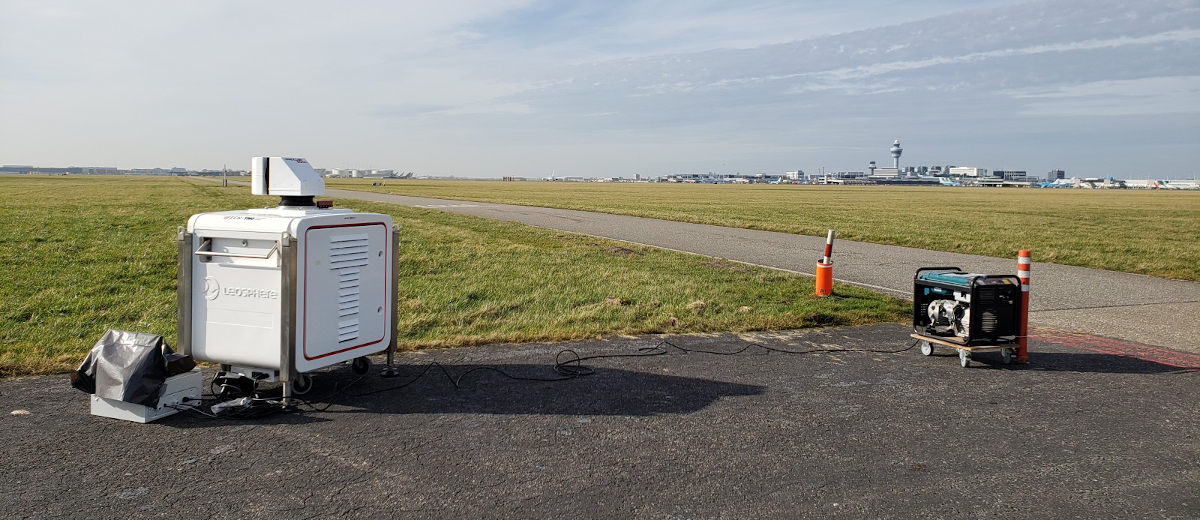
Schiphol, Wageningen University & Research (WUR) and the Netherlands Aerospace Centre (NLR) are conducting research into an innovative technology to reduce the amount of ultrafine particles in the air and improve local air quality. They are investigating whether a special kind of mist can reduce ultrafine particles around the runways.
Schiphol, WUR and NLR are carrying out research into whether ultrafine particles can be removed from the air using so called ionised mist particles. The idea is that these particles attach themselves to the ultrafine particles so that they clump together and become heavier, and then fall to the ground rather than disperse. This approach is based on a tried-and-tested concept from the world of construction, where it is common to use mist to reduce dust and particulate matter. Schiphol, WUR and NLR want to fine-tune this method so that it can also be applied to ultrafine particles in the open air and in airport operations.
“The air quality at and around Schiphol is very important for the health of our employees and neighbours. We are continuously looking for innovative solutions. This technology is still in an experimental phase, but it has enormous potential.”
Carolijn Schoofs, Head of Innovation at Royal Schiphol Group
“During previous research, we measured the ultrafine particle concentrations as a result of take-offs. Based on these results, we would like to further investigate whether our idea works effectively to reduce the amount of ultrafine particles by means of ionised mist particles. ”
NLR spokesperson Kees de Waal
At the start of 2022, Schiphol expects to be able to say whether the researched technique has the potential to reduce concentrations of ultrafine particles emitted from aircraft.
Ultrafine Particles Action Plan
Reducing ultrafine particle emissions is Schiphol policy. In 2019, Schiphol launched an action plan to reduce ultrafine particles at and around the airport. This plan includes measures to improve air quality, such as using electricity to power ground activities, sustainable taxiing and investing in sustainable aviation fuel, and carrying out research to find out more about ultrafine particles.

